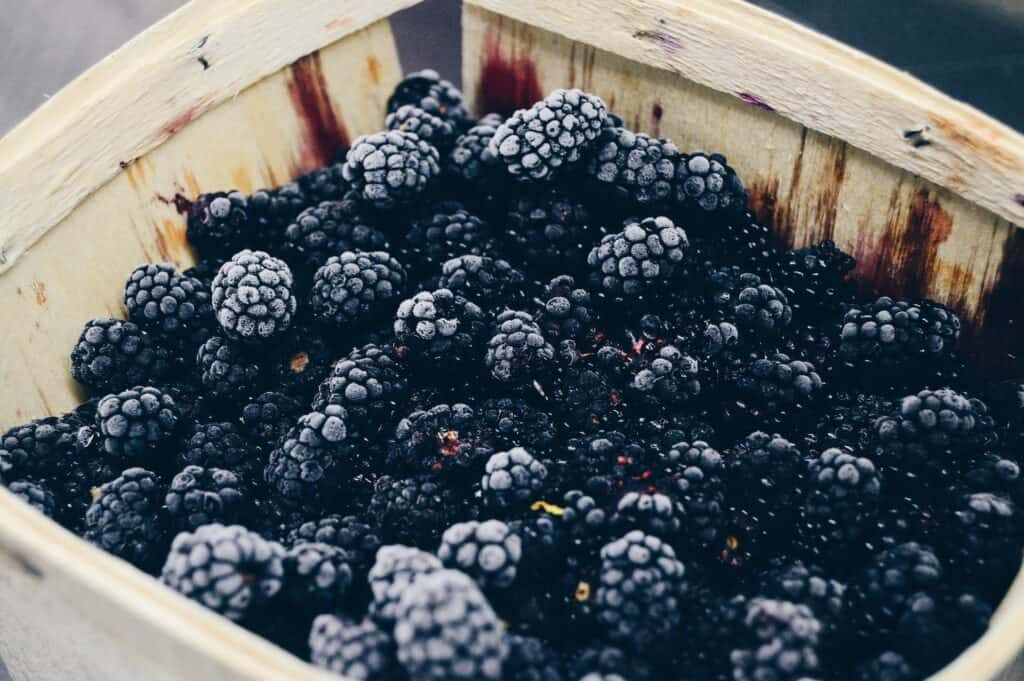Best Foods for Gut Health
Disclosure: This post may contain affiliate links, which means we may receive a commission if you click a link and purchase something that we have recommended. While clicking these links won’t cost you any extra money, they will help us keep this site up and running! Thank you for your support.

Our gut bacteria play a crucial role in maintaining overall health, and the food we eat has a significant impact on gut health. In this article, we will discuss the best and worst foods to eat for healthy gut bacteria.
What Are The Best Foods for Gut Health?
Probiotic foods contain live active cultures that can be found in fermented foods like sauerkraut, kimchi, miso, and yogurt.
These good bacteria help balance the gut microbiota and prevent chronic disease.
They can also help with diarrhea, boost the immune system, and support heart and skin health.
Some of the best probiotic foods for gut health are sauerkraut is made from fermented cabbage and salt, while kimchi is a spicy Korean version of sauerkraut made with additional ingredients like scallions, radishes, and shrimp. Kefir is a drinkable yogurt made from fermented milk, and kombucha is a fermented tea made with a SCOBY (symbiotic colony of bacteria and yeast) and sugar. Miso is a fermented paste made from soybeans, barley, or rice, and tempeh is a fermented soybean product.
Finally, yogurt is made by fermenting milk with bacteria, and some types contain live and active cultures of probiotics.
While store bought yogurt may be the most common probiotic food known, we don’t actually like it being the main source of probiotic foods due to it’s low bacteria count, added sugars, and other additives.
It’s important to eat fermented foods because the bacteria in the digestive tract create beneficial effects for your mood. Be sure to
read our review on Viome. Viome supplements are aimed at improve gut health.

-
1) Sauerkraut
My favourite food for gut health when I started my journey to increase my healthy bacteria was sauekraut and apple cider vinegar
Sauerkraut is a fermented food made from cabbage and salt.
During the fermentation process, microorganisms consume the sugar present in cabbage and produce carbon dioxide and acids.
The probiotics created during fermentation assist with digestion and add good bacteria to the gut.
Consuming fermented foods like sauerkraut can help improve gut health by increasing the diversity and number of good bacteria in the microbiome.
A healthy gut microbiota is important for many aspects of health, including digestion, immunity, and overall well-being.
Sauerkraut is also a good source of vitamins and minerals. One cup of raw cabbage, the main ingredient in sauerkraut, provides 36% of the Daily Value for vitamin C and 56% DV for vitamin K, according to the USDA.
In addition to its probiotic content, sauerkraut may offer other potential health benefits due to its nutrient content.
It’s important to note that the specific health benefits of sauerkraut may vary depending on the individual and the specific strain of bacteria present in the sauerkraut.
Saurkraut is naturally rich in lactobacbacilus strains and should be a staple in your list of gut health foods.
2) Kimchi
Kimchi is a fermented food made from a mixture of vegetables, typically including cabbage, radishes, and scallions, and spices.
Kimchi is one of the few probiotic rich foods that should be included for better gut health.
Like other fermented foods, kimchi is made by the action of microorganisms that consume sugars and produce lactic acid, which helps preserve the food and create a tangy flavor.
The probiotics created during the fermentation process can help improve gut health by increasing the diversity and number of good bacteria in the microbiome.
A healthy gut microbiota is important for many aspects of health, including digestion, immunity, and overall well-being.
In addition to its probiotic content, kimchi may offer other potential health benefits due to its nutrient content. Cabbage, one of the main ingredients in kimchi, is a good source of vitamins and minerals, including vitamin C and vitamin K.
It’s important to note that the specific health benefits of kimchi may vary depending on the individual and the specific strain of bacteria present in the kimchi.
It’s also important to maintain a balanced diet and get sufficient nutrients from a variety of sources.
3 ) Kefir
Kefir is a fermented milk drink that is made by adding kefir grains, which are colonies of yeast and lactic acid bacteria, to milk.
The kefir grains ferment the sugars in the milk, giving it a slightly thicker consistency and tart flavour.
Like other fermented foods, kefir contains probiotics, which are beneficial gut bacteria that can help improve gut health by increasing the diversity and number of good bacteria in the microbiome.
A healthy gut microbiome is important for many aspects of health, including digestion, immunity, and overall well-being. In addition to its probiotic content, kefir may offer other potential health benefits due to its nutrient content.
Kefir is a good source of protein and calcium, and it may also contain other vitamins and minerals.
It’s important to note that the specific health benefits of kefir may vary depending on the individual and the specific strain of bacteria present in the kefir.
It’s also important to maintain a balanced diet and get sufficient nutrients from a variety of sources.
5) Miso
Miso is a fermented paste made from soybeans, barley, or rice.
During the fermentation process, good gut bacteria are produced, which may help improve gut health by increasing the diversity and number of good gut microbes in the microbiome.
A healthy gut microbiota is important for many aspects of health, including digestion, immunity, and overall well-being.
In addition to its probiotic content, miso may offer other potential health benefits due to its nutrient content.
Miso made from soybeans is a good source of protein, and it may also contain other vitamins and minerals.
It’s important to note that the specific health benefits of miso may vary depending on the individual and the specific strain of bacteria present in the miso. It’s also important to maintain a balanced diet and get sufficient nutrients from a variety of sources.
Miso is high in sodium, so it’s important to consume it in moderation.6) Tempeh
Tempeh is a fermented food made from soybeans.
Like other fermented foods, tempeh contains probiotics, which are healthy gut bacteria that can help improve gut health by increasing the diversity and number of good bacteria in the microbiome.
A healthy gut microbiota is important for many aspects of health, including digestion, immunity, and overall well-being.
In addition to its gut health benefits, tempeh may offer other potential health benefits due to its nutrient content.
Tempeh is a good source of protein and fibre, and it may also contain other vitamins and minerals.
It’s important to note that the specific health benefits of tempeh may vary depending on the individual and the specific strain of bacteria present in the tempeh.
It’s also important to maintain a balanced diet and get sufficient nutrients from a variety of sources. Some people may be allergic to soy, so it’s important to consult with a healthcare professional if you have any concerns
7) Yogurt
Yogurt is a fermented food made by adding bacteria to milk and allowing it to ferment.
Some types of yogurt contain live and active cultures of beneficial bacteria, which are known as probiotics.
These probiotics can help improve gut health by increasing the diversity and number of good bacteria in the microbiome.
A healthy gut flora is important for many aspects of health, including digestion, immunity, and overall well-being. Probiotics can help restore the balance of good and bad bacteria in the gut, which can help improve various digestive issues, such as constipation, diarrhea, and irritable bowel syndrome (IBS).
Probiotics may also help boost the immune system and reduce the risk of certain infections.
In addition to its probiotic content, yogurt may offer other potential health benefits due to its nutrient content.
Yogurt can be a good source of protein and calcium, and it may also contain other vitamins and minerals.
It’s important to note that the specific health benefits of yogurt may vary depending on the individual and the specific strain of bacteria present in the yogurt.
It’s also important to maintain a balanced diet and get sufficient nutrients from a variety of sources. Some types of yogurt may contain added sugars and other ingredients that may have negative effects on health, so it’s important to read labels and choose yogurt products made with natural ingredients
The Best Prebiotic Foods For Gut Health

Prebiotics are non-digestible food ingredients that stimulate the growth and/or activity of beneficial microorganisms in the gut, such as probiotics.
Prebiotics are found in a variety of foods, including fruits, vegetables, whole grains, and legumes.
When consumed, prebiotics pass through the small intestine undigested and reach the colon, where they are fermented by the gut microbes.
This fermentation process produces short-chain fatty acids (SCFAs), which can provide nourishment for the beneficial bacteria in the microbiome.
By providing a source of nourishment for the beneficial bacteria in the gut, prebiotics can help increase the number and diversity of good bacteria in the microbiome.
This can have various health benefits, including improving digestion, boosting the immune system, and reducing the risk of certain infections.
In addition to their potential prebiotic effects, prebiotic-rich foods are also generally healthy and provide a variety of other nutrients, including fibre, vitamins, and minerals.
It’s important to note that the specific health benefits of prebiotics may vary depending on the individual and the specific types of prebiotics consumed. It’s also important to maintain a balanced diet and get sufficient nutrients from a variety of sources.
There are many prebiotic-rich foods that can help improve gut health by stimulating the growth and/or activity of beneficial microorganisms in the gut.

1) Bananas
Green bananas are a good source of resistant starch, which is a type of carbohydrate that resists digestion in the small intestine and reaches the colon unchanged.
In the colon, resistant starch is fermented by the gut microbiome, producing short-chain fatty acids (SCFAs) that can provide nourishment for the beneficial bacteria in the microbiome.
2) Garlic
Garlic contains prebiotics called fructooligosaccharides (FOS), which are a type of carbohydrate that resists digestion in the small intestine and reaches the colon unchanged.
In the colon, FOS are fermented by the gutmicrobes, producing short-chain fatty acids (SCFAs) that can provide nourishment for the beneficial bacteria in the microbiome.
It’s important to note that the specific health benefits of FOS may vary depending on the individual and the specific type and amount of FOS consumed. It’s also important to maintain a balanced diet and get sufficient nutrients from a variety of sources.
Garlic is a good source of FOS when it is raw or lightly cooked, but the FOS content may decrease when garlic is cooked for a long time or at high temperatures.
We love garlic as it can help beneficial gut bacteria for some people.
3) Onions
Onions contain prebiotics called fructooligosaccharides (FOS), which are a type of carbohydrate that resists digestion in the small intestine and reaches the colon unchanged.
In the colon, FOS are fermented by the gut microbes, producing short-chain fatty acids (SCFAs) that can provide nourishment for the beneficial bacteria in the microbiome.
It’s important to note that the specific health benefits of FOS may vary depending on the individual and the specific type and amount of FOS consumed. It’s also important to maintain a balanced diet and get sufficient nutrients from a variety of sources.
Onions are a good source of FOS when they are raw or lightly cooked, but the FOS content may decrease when onions are cooked for a long time or at high temperatures.
4) Asparagus
Asparagus is a good source of inulin, which is a type of carbohydrate that resists digestion in the small intestine and reaches the colon unchanged.
In the colon, inulin is fermented by the gut microbiome, producing short-chain fatty acids (SCFAs) that can provide nourishment for the beneficial bacteria in the microbiome.
Asparagus is a good source of inulin when it is raw or lightly cooked, but the inulin content may decrease when asparagus is cooked for a long time or at high temperatures.
5) Leeks
Leeks are a good source of inulin, which is a prebiotic that helps stimulate the growth of healthy bacteria in the gut.
In addition to their potential prebiotic effects, asparagus is also generally healthy and provides a variety of other nutrients, including fiber, vitamin K, and folate. It’s important to note that the specific health benefits of inulin may vary depending on the individual and the specific type and amount of inulin consumed.
It’s also important to maintain a balanced diet and get sufficient nutrients from a variety of sources.
Leeks are a great way to have better gut health but it’s vegetable that’s often forgotten
6) Whole Grains
Whole grains are a good source of prebiotics called beta-glucans, which are a type of carbohydrate that resists digestion in the small intestine and reaches the colon unchanged.
In the colon, beta-glucans are fermented by the gut microbiome, producing short-chain fatty acids (SCFAs) that can provide nourishment for the beneficial bacteria in the microbiome.
Consuming whole grains that contain beta-glucans may help improve gut health by increasing the number and diversity of good bacteria in the microbiome.
This can have various health benefits, including improving digestion, boosting the immune system, and reducing the risk of certain infections.
In addition to their potential prebiotic effects, whole grains are also generally healthy and provide a variety of other nutrients, including fiber, B vitamins, and minerals.
It’s important to note that the specific health benefits of beta-glucans may vary depending on the individual and the specific type and amount of beta-glucans consumed.
Some good sources of beta-glucans include oats, barley, and quinoa.
7) Legumes
Legumes, such as beans, lentils, and chickpeas, are a good source of prebiotics called oligosaccharides, which are a type of carbohydrate that resists digestion in the small intestine and reaches the colon unchanged.
In the colon, oligosaccharides are fermented by the beneficial microbes, producing short-chain fatty acids (SCFAs) that can provide nourishment for the beneficial bacteria in the microbiome.
Consuming legumes that contain oligosaccharides may help improve gut health by increasing the number and diversity of good bacteria in the microbiome.
This can have various health benefits, including improving digestion, boosting the immune system, and reducing the risk of certain infections. In addition to their potential prebiotic effects, legumes are also generally healthy and provide a variety of other nutrients, including fiber, protein, B vitamins, and minerals.
It’s important to note that the specific health benefits of oligosaccharides may vary depending on the individual and the specific type and amount of oligosaccharides consumed.
It’s also important to maintain a balanced diet and get sufficient nutrients from a variety of sources.
Some good sources of oligosaccharides include beans, lentils, and chickpeas.
Polyphenols

Polyphenols are a group of compounds found in plants that have antioxidant and anti-inflammatory properties.
Some studies have suggested that polyphenols may have a beneficial effect on the gut microbiota, although more research is needed to fully understand the mechanisms and potential health benefits.
One way in which polyphenols may benefit the microbiota is by acting as prebiotics, which are non-digestible food ingredients that stimulate the growth and/or activity of beneficial microorganisms in the gut.
Polyphenols may also interact with the microbiota in other ways, such as by modulating the production of enzymes and other compounds involved in metabolism and immune function.
Some research has suggested that polyphenols may help improve gut health by increasing the number and diversity of good bacteria in the microbiota, which can have various health benefits, including improving digestion, boosting the immune system, and reducing the risk of certain infections.
It’s important to note that the specific health benefits of polyphenols may vary depending on the individual and the specific type and amount of polyphenols consumed.
It’s also important to maintain a balanced diet and get sufficient nutrients from a variety of sources.
Polyphenols are found in a variety of foods, including fruits, vegetables, whole grains, nuts, seeds, and legumes.
What Are The Worst Foods for The Gut Microbiome

These are some of the worst foods for your gut bacteria and can contribute to increasing the pathogenic bacteria which may lead to gastrointestinal diseases:
- Processed foods: These are often high in additives, preservatives, and other artificial ingredients that can disrupt the balance of beneficial bacteria in the gut and lead to digestive issues.
- Refined sugars: Consuming large amounts of refined sugars can feed harmful bacteria in the gut and contribute to the development of conditions such as obesity, diabetes, and heart disease.
- Alcohol: Excessive alcohol consumption can lead to inflammation and irritation in the gut, as well as damage the lining of the digestive system.
- Fried foods: Fried foods are high in unhealthy fats that can contribute to inflammation in the body and damage the gut lining.
- Caffeine: While small amounts of caffeine can be beneficial, excessive consumption can lead to digestive issues such as acid reflux and stomach irritation.
- Artificial sweeteners: Some artificial sweeteners have been shown to have negative effects on gut health, including disrupting the balance of beneficial bacteria and increasing the risk of digestive issues.
It’s important to note that everyone’s gut is different, and what may be problematic for one person may not be for another. It’s always a good idea to pay attention to how your body reacts to different foods and to consult with a healthcare professional if you have any concerns about your gut health.
1) Processed foods
Processed foods are those that have been altered in some way from their natural state, often through the addition of preservatives, additives, or other artificial ingredients.
These foods are often high in salt, sugar, and unhealthy fats, which can contribute to a range of health problems.
One of the main reasons why processed foods are bad for gut health is that they can disrupt the balance of beneficial bacteria in the gut microbiome.
The gut microbiome is a complex community of bacteria, fungi, and other microorganisms that live in the digestive system and play a vital role in maintaining good health.
A healthy gut microbiome is important for digestion, immune function, and overall health.
Processed foods, particularly those that are high in added sugars and unhealthy fats, can feed harmful bacteria in the gut and disrupt the balance of the microbiome.
This can lead to a range of digestive issues, such as bloating, constipation, diarrhea, and abdominal pain. Processed foods can also contribute to inflammation in the body, which can damage the lining of the gut and increase the risk of conditions such as irritable bowel syndrome (IBS) and inflammatory bowel disease (IBD).
It’s important to remember that not all processed foods are necessarily unhealthy.
Some types of processed foods, such as canned vegetables and fruits, can be convenient and provide important nutrients.
However, it’s generally recommended to limit your intake of highly processed foods and choose whole, unprocessed foods whenever possible to support good gut health.
2) Refined Sugars
Refined sugars are those that have been extracted from natural sources, such as cane or beet sugar, and then processed to remove impurities.
They are often found in processed foods, including baked goods, candy, soda, and other sweetened beverages.
Consuming large amounts of refined sugars can be detrimental to gut health in several ways.
One of the main reasons is that refined sugars can feed harmful bacteria in the gut and disrupt the balance of the microbiome.
A healthy gut microbiome is important for digestion, immune function, and overall health, and a diet high in refined sugars can lead to an overgrowth of harmful bacteria and a reduction in beneficial bacteria.
Refined sugars can also contribute to inflammation in the body, which can damage the lining of the gut and increase the risk of conditions such as irritable bowel syndrome (IBS) and inflammatory bowel disease (IBD).
In addition, consuming large amounts of refined sugars can lead to the development of health problems such as obesity, diabetes, and heart disease.
It’s important to note that while small amounts of sugar can be part of a healthy diet, it’s important to consume it in moderation.
Instead of choosing foods and drinks that are high in refined sugars, try to opt for whole, unprocessed foods and natural sweeteners like honey and maple syrup.
3) Alcohol
Alcohol consumption can have negative effects on the gut microbiome and overall gut health.
The gut microbiome is a complex community of bacteria, fungi, and other microorganisms that live in the digestive system and play a vital role in maintaining good health.
A healthy gut microbiome is important for digestion, immune function, and overall health.
Excessive alcohol consumption can lead to inflammation and irritation in the gut, as well as damage the lining of the digestive system.
Alcohol can also alter the balance of the gut microbiome, leading to an overgrowth of harmful bacteria and a reduction in beneficial bacteria.
This can lead to a range of digestive issues, such as bloating, constipation, diarrhea, and abdominal pain.
Alcoholism has been proven to have a deleterious effect on the intestinal microbiota, according to research, such as the 2022 review article published in Frontiers in Cellular and Infection Microbiology.
A 2021 study published in Frontiers in Cardiovascular Medicine reveals that moderate alcohol use may have a beneficial effect on both the gut microbiome and cardiovascular disease, despite the paucity of data on the effects of moderate alcohol consumption on gut bacteria. Drinking should be done in moderation, which is one drink for women and two for men each day, if you enjoy it.
In addition to its effects on the gut microbiome, alcohol consumption can also contribute to the development of other health problems, such as liver disease, pancreatitis, and certain cancers.
It’s important to consume alcohol in moderation and to be aware of the potential negative effects on the body.
If you have any concerns about your alcohol consumption, it’s always a good idea to consult with a healthcare professional.
If you do drink, try Zbiotics. It drastically helps reduce hangovers
It helps you by temporarily adding good bacteria to your gut that can break down acetaldehyde.
These bacteria have been engineered to produce the same type of enzyme found in your liver – replicating its key function where it matters: your gut.
4) Artificial sweeteners
Some artificial sweeteners have been shown to have negative effects on the gut microbiome and overall gut health, while others appear to be safe.
It’s important to note that not all artificial sweeteners are the same and that their effects on the gut microbiome can vary.
Artificial sweeteners are non-nutritive sweeteners that are used to sweeten foods and drinks without adding calories.
They are often used as a sugar substitute in diet and low-calorie products. Some artificial sweeteners, such as aspartame, saccharin, and acesulfame potassium, have been shown to have negative effects on the gut microbiome.
These sweeteners have been shown to disrupt the balance of beneficial bacteria in the gut and increase the risk of digestive issues.
According to study from 2021 that was published in the International Journal of Molecular Sciences, they travel through the body undigested, but they interact with the gut’s bacteria and alter its composition.
Other artificial sweeteners, such as stevia and monk fruit, appear to be safe and may even have some beneficial effects on the gut microbiome. However, more research is needed to fully understand their effects on the gut microbiome and overall health.
It’s important to note that while artificial sweeteners can be a useful tool for reducing calorie intake and managing blood sugar levels, they should be consumed in moderation. Instead of relying on artificial sweeteners, it’s generally recommended to choose whole, unprocessed foods and natural sweeteners, such as honey and maple syrup, whenever possible. If you have any concerns about your use of artificial sweeteners, it’s always a good idea to consult with a healthcare professional.
Some foods, such as fermented foods, high-fiber foods, prebiotic foods, omega-3 fatty acids, probiotics, and plant-based proteins, can be beneficial for supporting the gut microbiome and overall gut health.
Other foods, such as processed foods, refined sugars, alcohol, fried foods, caffeine, and some artificial sweeteners, can be detrimental to the gut microbiome and should be consumed in moderation.
Here is a list of foods that can be beneficial for gut health:
- Fermented foods: These include foods like yogurt, kefir, sauerkraut, and kimchi, which are rich in beneficial bacteria that can help to support the gut microbiome.
- High-fiber foods: Foods that are high in fiber, such as fruits, vegetables, legumes, and whole grains, can help to support good digestion and promote the growth of beneficial bacteria in the gut.
- Prebiotic foods: Prebiotics are types of fiber that can’t be digested by the body, but are fermented by the beneficial bacteria in the gut. Good sources of prebiotics include onions, garlic, leeks, asparagus, and bananas.
- Omega-3 fatty acids: These healthy fats, found in foods like fatty fish, nuts, and seeds, can help to reduce inflammation in the body and support gut health.
- Probiotics: These are live microorganisms that can be found in supplements or certain foods, such as fermented foods, that can help to support the balance of beneficial bacteria in the gut.
- Water: Staying hydrated is important for good digestion and overall gut health. Aim to drink plenty of water throughout the day to support good bowel function.
- Plant-based proteins: Plant-based proteins, such as beans, lentils, and tofu, can be good choices for supporting gut health because they are high in fiber and other nutrients that can help to promote the growth of beneficial bacteria in the gut.
To support good gut health, it’s important to choose a variety of whole, unprocessed foods and to limit your intake of highly processed foods and unhealthy fats.
It’s also important to stay hydrated by drinking plenty of water throughout the day.
If you have any concerns about your gut health, it’s always a good idea to consult with a healthcare professional.
By paying attention to the types of foods you eat and taking care of your gut, you can help to support good digestion, immune function, and overall health.
Processed foods are those that have been altered in some way from their natural state, often through the addition of preservatives, additives, or other artificial ingredients.
These foods are often high in salt, sugar, and unhealthy fats, which can contribute to a range of health problems.
One of the main reasons why processed foods are bad for gut health is that they can disrupt the balance of beneficial bacteria in the gut microbiome.
The gut microbiome is a complex community of bacteria, fungi, and other microorganisms that live in the digestive system and play a vital role in maintaining good health.
A healthy gut microbiome is important for digestion, immune function, and overall health.
Processed foods, particularly those that are high in added sugars and unhealthy fats, can feed harmful bacteria in the gut and disrupt the balance of the microbiome.
This can lead to a range of digestive issues, such as bloating, constipation, diarrhea, and abdominal pain. Processed foods can also contribute to inflammation in the body, which can damage the lining of the gut and increase the risk of conditions such as irritable bowel syndrome (IBS) and inflammatory bowel disease (IBD).
It’s important to remember that not all processed foods are necessarily unhealthy.
Some types of processed foods, such as canned vegetables and fruits, can be convenient and provide important nutrients.
However, it’s generally recommended to limit your intake of highly processed foods and choose whole, unprocessed foods whenever possible to support good gut health.
-
Probiotic foods contain live active cultures that can be found in fermented foods like sauerkraut, kimchi, miso, and yogurt.
These good bacteria help balance the gut microbiota and prevent chronic disease.
They can also help with diarrhea, boost the immune system, and support heart and skin health.
Some of the best probiotic foods for gut health are sauerkraut is made from fermented cabbage and salt, while kimchi is a spicy Korean version of sauerkraut made with additional ingredients like scallions, radishes, and shrimp. Kefir is a drinkable yogurt made from fermented milk, and kombucha is a fermented tea made with a SCOBY (symbiotic colony of bacteria and yeast) and sugar. Miso is a fermented paste made from soybeans, barley, or rice, and tempeh is a fermented soybean product.
Finally, yogurt is made by fermenting milk with bacteria, and some types contain live and active cultures of probiotics.
While store bought yogurt may be the most common probiotic food known, we don’t actually like it being the main source of probiotic foods due to it’s low bacteria count, added sugars, and other additives.
It’s important to eat fermented foods because the bacteria in the digestive tract create beneficial effects for your m
